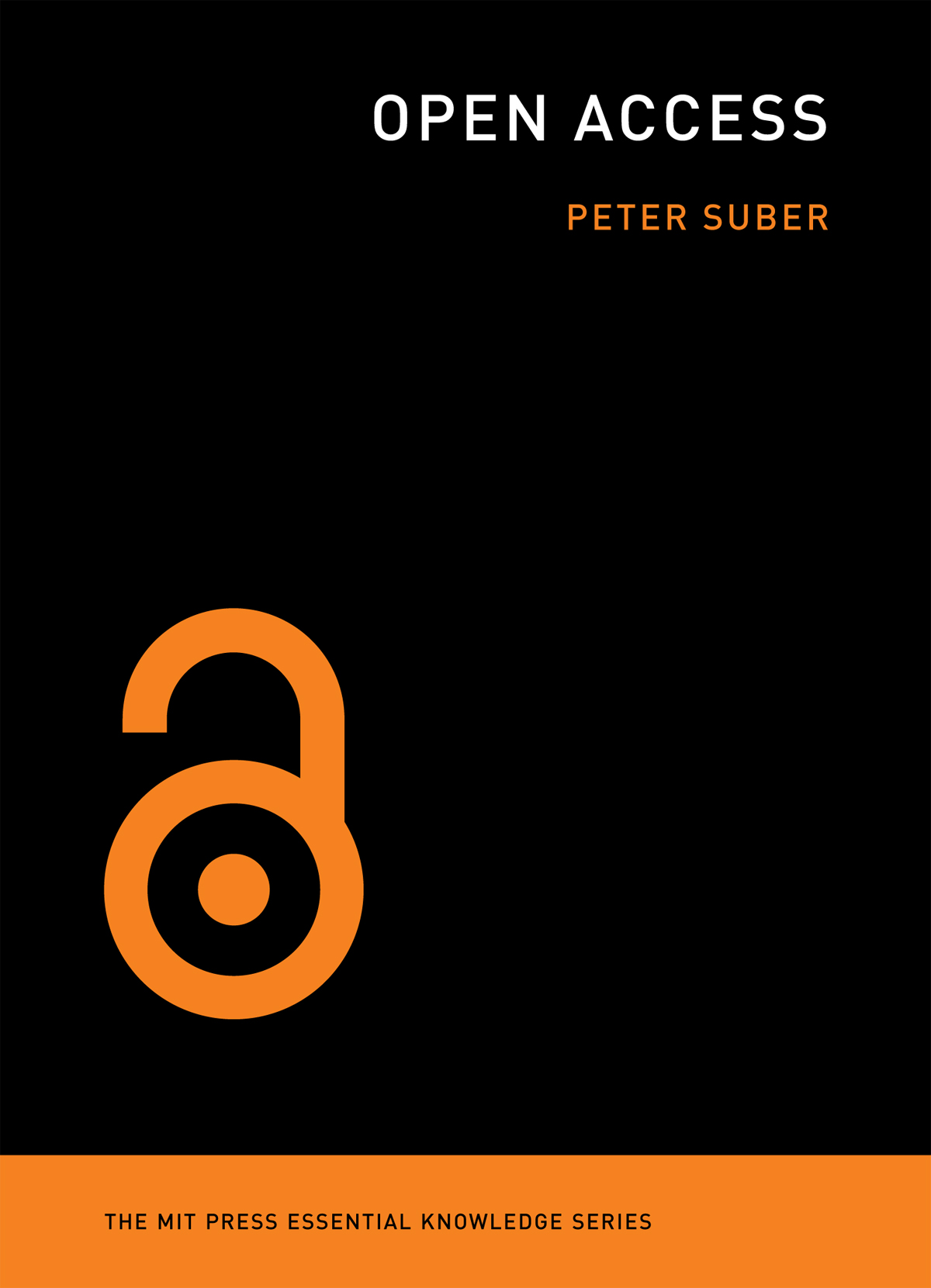Peter Suber: Open Access (2012)
Filed under book | Tags: · copyright, open access, publishing

“The Internet lets us share perfect copies of our work with a worldwide audience at virtually no cost. We take advantage of this revolutionary opportunity when we make our work “open access”: digital, online, free of charge, and free of most copyright and licensing restrictions. Open access is made possible by the Internet and copyright-holder consent, and many authors, musicians, filmmakers, and other creators who depend on royalties are understandably unwilling to give their consent. But for 350 years, scholars have written peer-reviewed journal articles for impact, not for money, and are free to consent to open access without losing revenue.
In this concise introduction, Peter Suber tells us what open access is and isn’t, how it benefits authors and readers of research, how we pay for it, how it avoids copyright problems, how it has moved from the periphery to the mainstream, and what its future may hold. Distilling a decade of Suber’s influential writing and thinking about open access, this is the indispensable book on the subject for researchers, librarians, administrators, funders, publishers, and policy makers.”
Publisher MIT Press, 2012
MIT Press Essential Knowledge series
Creative Commons Attribution License
ISBN 0262300982, 9780262300988
242 pages
PDF (updated on 2016-12-23)
HTML, PDFs (added on 2018-9-23)
Gary Hall (ed.): Digitize Me, Visualize Me, Search Me: Open Science and its Discontents (2011-)
Filed under living book | Tags: · computing, data, data mining, data visualisation, digital humanities, knowledge, networks, open access, open data, open knowledge, open science, open source, publishing, science, search, web
![]()
“One of the aims of the Living Books About Life series is to provide a ‘bridge’ or point of connection, translation, even interrogation and contestation, between the humanities and the sciences. Accordingly, this introduction to Digitize Me, Visualize Me, Search Me takes as its starting point the so-called ‘computational turn’ to data-intensive scholarship in the humanities.
The phrase ‘the computational turn’ has been adopted to refer to the process whereby techniques and methodologies drawn from computer science and related fields – including science visualization, interactive information visualization, image processing, network analysis, statistical data analysis, and the management, manipulation and mining of data – are being increasingly used to produce new ways of approaching and understanding texts in the humanities – what is sometimes thought of as ‘the digital humanities’.” (from Introduction)
Publisher Open Humanities Press
Living Books About Life series
View online (wiki/PDF/HTML articles/videos)
PDF (PDF’d Introduction with hyperlinked articles)
Freiheit vor Ort: Handbuch kommunale Netzpolitik (2011) [German]
Filed under book | Tags: · blogging, commons, copyright, creative commons, floss, free software, networks, open access, open data, open government, open source, politics, web

Freiheit beginnt vor Ort. Dies gilt gerade auch für Freiheit in der digitalen Gesellschaft. In acht Kapiteln widmen sich fünfzehn AutorInnen kommunaler Netzpolitik in all ihren Facetten: von Freien Funknetzen, Creative Commons, offenen Lehrunterlagen, Open Source Software, Blogs und Wikis bis zu Open Government, Open Data und dem Web als Kompetenz- und Forschungsfeld.
Im Anschluss an die Beiträge kommen in Interviews Menschen zu Wort, die global oder lokal in den genannten Bereichen tätig sind, u.a. der Gründer der Free Software Foundation, Richard Stallman, Creative-Commons-Initiator Lawrence Lessig oder Wendy Hall, Mitinitiatorin der neuen Studien- und Forschungsrichtung Webwissenschaften.
Konkrete Projektvorschläge schließen die Kapitel ab. Sie richten sich an lokale EntscheidungsträgerInnen und netzpolitisch Interessierte, die die Potentiale digitaler Technologien für Wirtschaft, Bildung, Kunst und Kultur ausschöpfen möchten. Vor Ort.
Bearbeitete Neuauflage des Bandes Freie Netze. Freies Wissen, Echo media verlag, Wien 2007.
Editors: Leonhard Dobusch, Christian Forsterleitner, Manuela Hiesmair
Publisher: Open Source Press, München, 2011
ISBN: 978-3-941841-40-6
266 pages
Licensed under Creative Commons License BY-SA 2.0 AT

